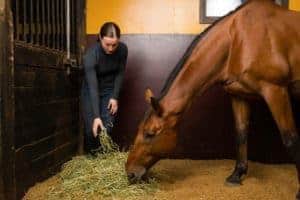
Cost-Effective Horse Feeding
Find out how to design an affordable feeding program while still meeting your horse’s nutritional requirements.

Find out how to design an affordable feeding program while still meeting your horse’s nutritional requirements.

Find out how you can influence your horse’s behavior through feed management and ingredients.
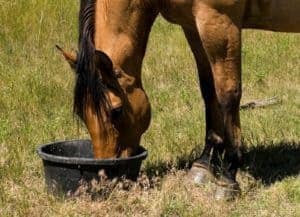
An equine nutritionist breaks down what’s in a grain-free feed and how you might increase calories for a performance horse consuming a grain-free diet.

Here’s a look at what hair analysis and bloodwork each can tell you about your horse’s nutritional health.

Is your horse’s hay meeting his nutritional, health, and welfare needs? Learn how to make informed forage decisions in the Winter 2023 issue of The Horse.

Horses need the essential nutrient vitamin E for proper muscle and cell function. Here’s how you can be sure you’re meeting their requirements.
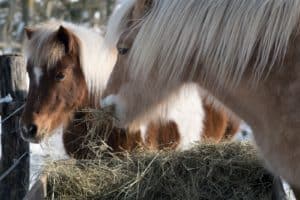
A nutrition expert offers advice for ensuring free-fed horses don’t overeat hay.

A nutrition expert offers advice on preventing weight gain and boredom while a hefty horse is on stall rest.

Stacking and tarping your hay correctly can ensure quality forage for your horse all winter.
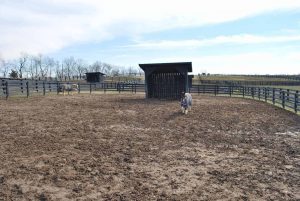
Horses that are used to being on pasture during the spring, summer, and fall might experience nutrient deficiencies during the winter.
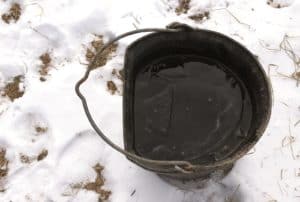
When the temperatures drop, make sure your horses always have access to water and that they are drinking enough.
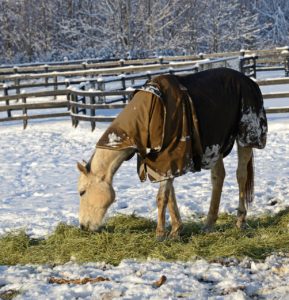
Ditch traditional bran mashes (and the issues they can cause) for forage feeding to keep horses warm.
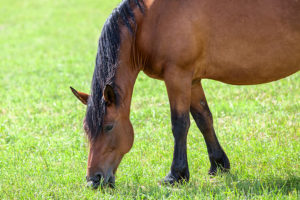
Nutritional evaluations take the guesswork out of whether your horse is consuming a balanced diet.
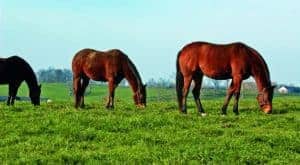
If your broodmare is overweight and/or has metabolic problems, her foal could be at risk. Here’s how you can keep both horses safe during pregnancy.

One equine nutritionist weighs in on which type of hay best helps horses stay warm during cold nights.
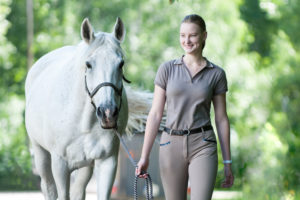
Here’s what owners can expect to pay when prioritizing their horses’ welfare. Learn more in this article from the Winter 2023 issue of The Horse.
Stay on top of the most recent Horse Health news with
© 2022 Copyright Statement dolor sit amet, consetetur sadipscing User Terms, sed diam nonumy eirmod tempor invidunt ut labore et dolore magna aliquyam erat, sed diam voluptua. At vero eos et accusam et justo duo dolores et ea rebum. Stet clita kasd gubergren, no sea takimata sanctus est Lorem ipsum dolor sit amet.
"*" indicates required fields